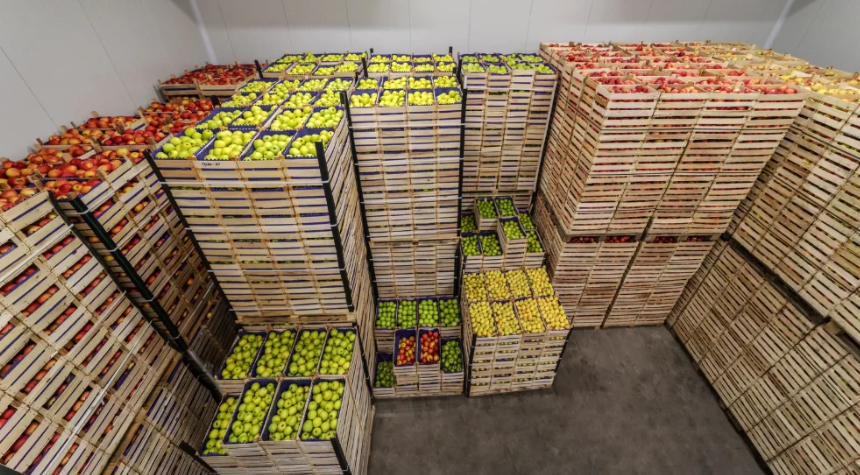
The Environmental Benefits of Reusable Shipping Crates
Sustainability is no longer a buzzword; it’s a necessity. Businesses are increasingly rethinking their logistics practices to align with environmental goals. Among the many solutions gaining traction, shipping crates stand out for their durability, reusability, and significant eco-friendly impact. Unlike disposable packaging, reusable crates offer long-term environmental and financial advantages while supporting cleaner supply chains.
Reducing Waste Through Reuse
Disposable packaging contributes to massive amounts of waste, particularly in large-scale shipping operations. Reusable crates eliminate the need for constant disposal and replacement. Built from materials like treated wood or reinforced plastic, these crates can withstand multiple shipments without deteriorating in quality.
The extended life cycle of these containers means fewer raw materials are consumed over time, minimizing the strain on natural resources. Additionally, crates that can be refurbished instead of discarded help further reduce landfill volume and environmental burden. Understanding things to do before you buy wooden shipping crates also plays a role in selecting eco-conscious materials and features that align with sustainability goals.
Lowering Carbon Footprint in Logistics
Shipping crates are designed for stacking and space optimization, which allows more goods to be transported in fewer trips. This improves load efficiency, reduces fuel consumption, and cuts down on greenhouse gas emissions. In contrast, fragile or single-use packaging often requires extra padding and space, limiting the amount of cargo per load.
Moreover, reusable crates typically offer better protection for goods, reducing the chances of damage during transit. Fewer damaged goods mean fewer returns and re-shipments, which again lowers the overall environmental impact of shipping operations.
Businesses are also encouraged to explore protecting your goods during transit through proper crate selection, which further minimizes waste due to product loss and supports more efficient transport practices.
Supporting a Circular Economy
The use of durable, reusable crates supports the concept of a circular economy, where products and materials are kept in use for as long as possible. After a crate has completed its usable lifecycle, it can be repurposed, recycled, or in some cases, reengineered into new packaging solutions.
This approach contrasts with the traditional linear model of “make, use, dispose,” which contributes to excessive waste and pollution. A circular model reduces the environmental footprint of both packaging and production while encouraging innovation in sustainable materials.
Many businesses are now including circular economy principles in their supply chain operations to meet corporate sustainability targets and appeal to eco-conscious consumers. Reusable crates serve as an accessible, high-impact entry point into this model.
See also: Business Class Flights to India: Complete Guide for First-Time Travelers
Cost Efficiency Meets Eco-Friendly Practices
While reusable crates may require a higher initial investment, they often result in long-term savings by reducing the need for repeat purchases. Maintenance costs are minimal, and their strength reduces the likelihood of damage-related losses. This balance of economy and ecology makes them a smart choice for businesses aiming to reduce costs without compromising sustainability.
Additionally, as governments and organizations push for greener logistics, many jurisdictions are offering incentives for businesses that adopt sustainable practices, including those using reusable packaging.
Crates also provide uniform sizing, ease of handling, and compatibility with various shipping methods, which enhances logistical efficiency across the board. Over time, these advantages contribute to both reduced operational costs and a cleaner environmental profile.
Industry-Wide Adoption and Responsibility
Sustainable shipping is a shared responsibility. As more companies across industries adopt reusable shipping solutions, the collective impact on the environment grows. By integrating reusable crates into their logistics strategy, businesses signal a strong commitment to reducing their carbon footprint and protecting natural ecosystems.
Suppliers, carriers, and customers all benefit when eco-conscious practices become the standard. It also builds brand reputation, as today’s customers are more likely to support businesses that demonstrate transparency and environmental stewardship.
Conclusion
Reusable shipping crates provide a clear path toward sustainable logistics, helping reduce waste, lower emissions, and support a circular economy. By investing in long-lasting, eco-friendly packaging solutions, businesses not only protect the environment but also gain operational advantages. Embracing reusable crates reflects a proactive approach to modern logistics, one that benefits both the planet and the bottom line.




